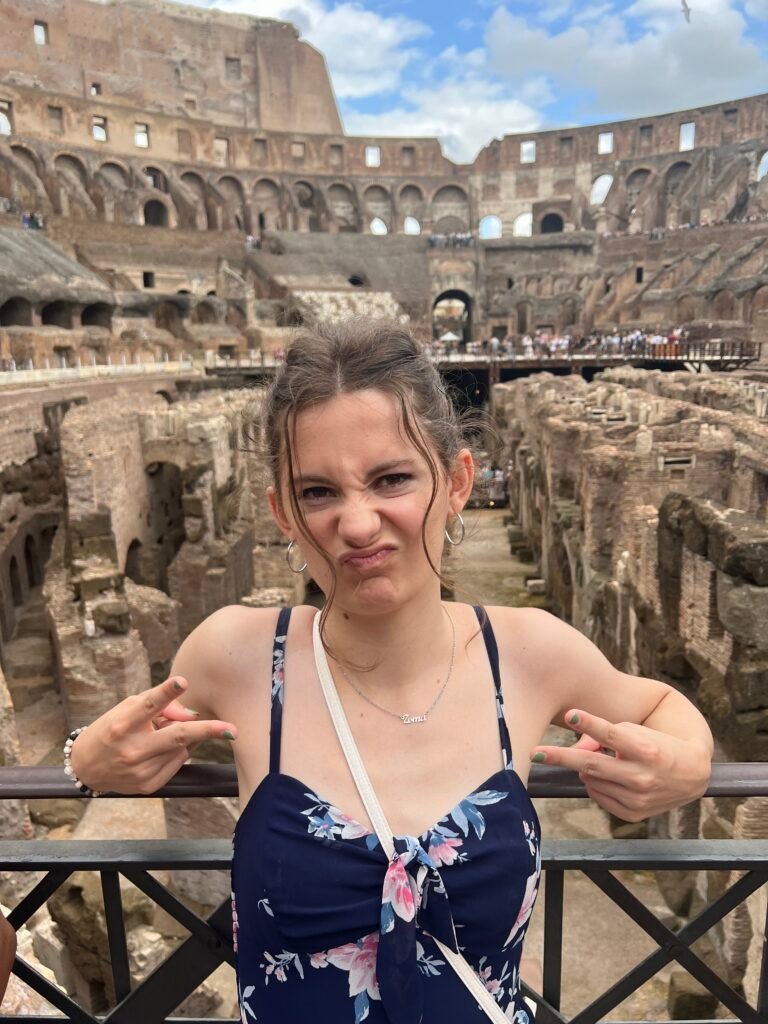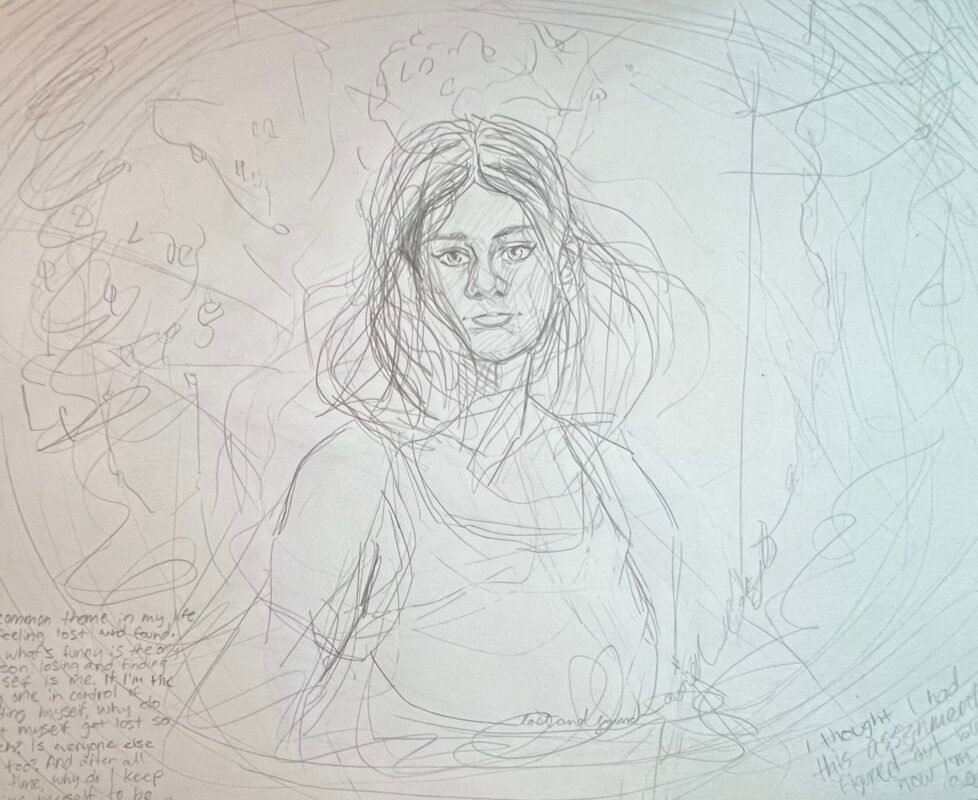“La Dolce Vita.” It’s an Italian term that translates to “the sweet life.” While studying abroad in Venice, Italy, I’ve seen it plastered in countless restaurants, boats, and shops. To many tourists, this simple phrase reaffirms the sense of bliss and wonder they feel while admiring Venice’s stunning beauty, but to me, “la dolce vita” signifies something a bit more personal about self-improvement and glowing up.
But it took me a long time to see this phrase in Venice with my own eyes, let alone attribute a deep, philosophically rich meaning to it. We’re talking a looooong time.
Pre-Glow-Up: How It Was
A year before coming to Italy, I struggled to understand what my “dolce vita” would look like. On paper, figuring out my plans for my future shouldn’t have been such a challenge for me. I was 19, fresh out of my first year of school at Yale as a computer science major, and had my whole summer ahead of me! I passed all my classes, was in a relationship, and had landed a summer internship to study software development in Portugal. Seems like a pretty sweet life, right?
Yeah! …On paper. But unfortunately, life is not as simple as what’s on paper. While I kept telling myself that my life was going great, in hindsight, I couldn’t have been more lost. I didn’t enjoy my computer science courses, my relationship was highly toxic, and I was too scared to accept my internship position overseas. I was also dealing with a lot of family issues at the time, which was the cherry on top of my quarter-life crisis sundae. So what did I do?
Nothing! For four months. At least, that’s what I told myself. Given the amount of stress and internal conflicts I was facing, it was understandable that I would buckle under the pressure I put on myself. Still, when I continued beating myself up for not bettering my situation, I knew I needed professional help. With the support of my family, I got myself into therapy and was diagnosed with generalized anxiety, social anxiety, and clinical depression. I also met with a psychiatrist and was able to get medication.

As I learned more about myself and how to form healthy habits for my condition in therapy, I started to see positive growth beyond getting myself out of this specific depressive episode. I didn’t realize it at the time, but what began for me as standard psychotherapy for depression led to a significant glow-up.
The Glow-Up: How I Did It
My glow-up journey certainly did not happen overnight. It took me months of hard work and self-reflection to glow up, so if you are seeking tips for how to glow up quickly, this may not be the post for you. If you are trying to glow up and are starting from a place similar to mine, it’s important not to expect too much of yourself too quickly! Take care of yourself, and take your journey one day at a time. <3 It is also important to mention that I am not a licensed therapist, so please keep that in mind if you’re looking to use any of these tips for yourself.
That said, around three months into therapy, I began noticing the first signs of a glow-up after using my therapy skills, but my glow-up took about one year. Here are some strategies I used to become a healthier, happier me!
Journaling
Ask anyone who’s had a glow-up, and they’ll tell you how vital journaling is. Journaling is a great way to connect with feelings, thoughts, and relationships. It allows you to be completely honest with yourself and can often serve as a great source to confide in if you have something a little tricky on your mind. If you’re a bit scatterbrained like me, journals are also fantastic for brain-dumping and putting your running thoughts onto paper.
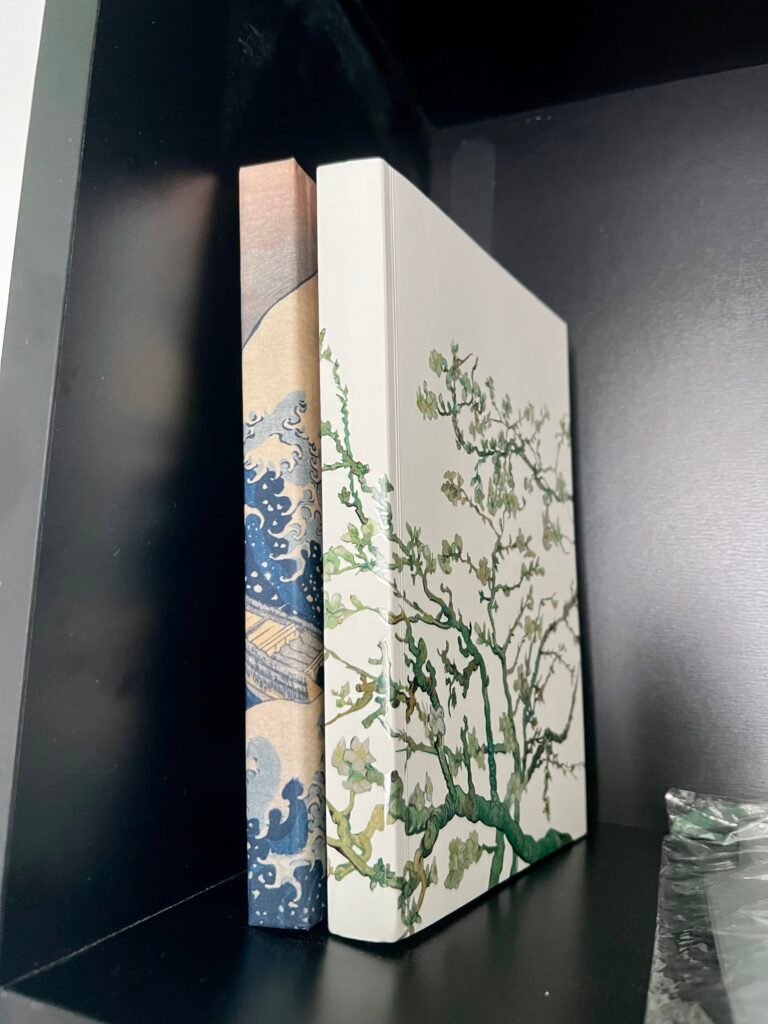
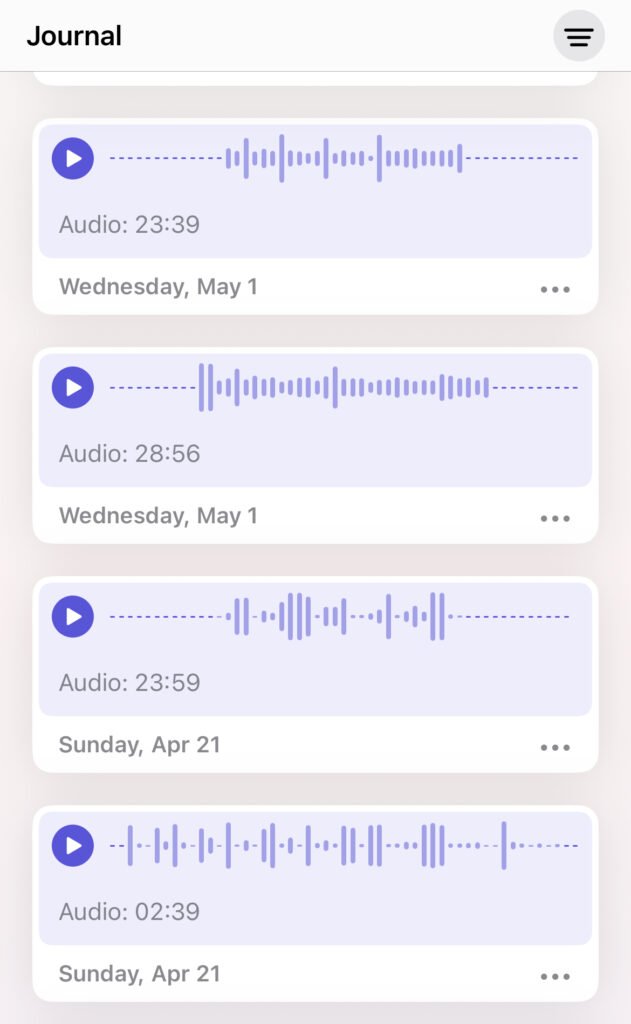
I prefer to write in physical journals when I can be more mindful, but if you’re in a pinch, using a note-taking or journaling app on your phone is a great alternative!
Mindfulness and Mindful Hobbies
Mindfulness means different things to everyone, but for me, it means slowing down to become more aware of my body and at peace with its place in space. You can be mindful in countless ways, such as meditating, coloring, cloud-watching, playing with a fidget toy, doing a breathing exercise, jamming with an instrument, looking out your window, going for a walk, cooking, making a playlist, exercising… the list goes on.

My favorite way to be mindful is by drawing! Pulling out a sketchbook and experimenting with different materials with no particular goal is a great way to explore my emotions. Regardless of your skill level, doing art is an excellent way of understanding yourself and deconstructing the world around you. I would highly recommend it to anyone looking for a mindful activity!
Self-Care and Exercise
For some people, the physical aspects of glowing up are often the most important, but it’s okay if they’re not your priority! They played a minor role in my glow-up, as I didn’t want to pressure myself too much to improve my physical appearance.
I practiced self-care by learning more about skincare, makeup, hair care, and sleep. Throughout my life, I practiced self-care to appear pleasing to others and often sacrificed sleep to make more time for myself or get tasks done. Part of my self-care journey has been learning to wear makeup, care for my hair and skin, and get enough sleep for my sake, not others’. If you don’t have much experience with cosmetics like I did, I would recommend researching your hair type, skin type, and different makeup looks that make you happy and confident. I find that when I am more attentive to my body’s needs, I feel refreshed and happy, so learning more about self-care is a good investment!


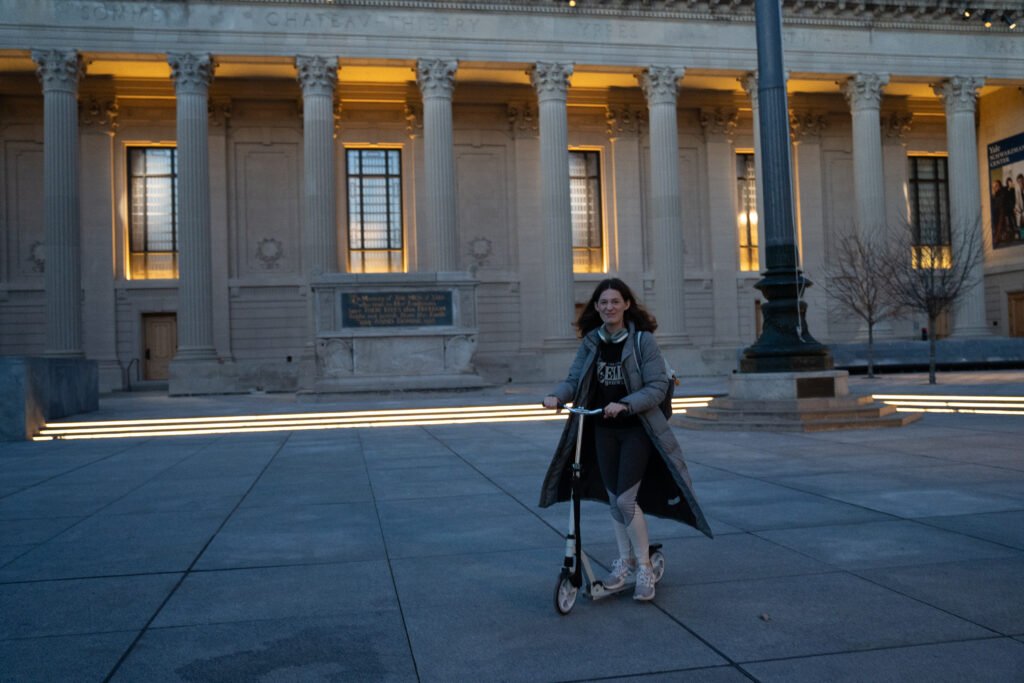
Forming healthy exercise habits is also essential to glowing up. Whether going for walks, joining a sports club, or bench-pressing at the gym, there are many different ways to exercise, so chances are, you’ll find a routine you enjoy! I’m not the most athletic, but I’ve found that attending group yoga at my school and scootering around my campus have been great forms of exercise recently.
Setting Boundaries and Getting Out of Toxic Relationships
One of the most challenging parts of any glow-up is weeding out toxic relationships and learning self-advocacy. However, by extension, it is also one of the most critical parts. I’m not advocating for burning bridges, nor would I advise abruptly leaving if it puts either party in danger. But if a relationship is particularly distressing, it may be worth reflecting on and perhaps addressing it.
Therapy was crucial in teaching me how to navigate my relationships, so if this is a significant priority for you while glowing up, I highly suggest seeking assistance from a professional. Learning to set boundaries and removing toxic relationships from my life has exponentially improved my self-esteem and confidence, so getting help from an expert could be just as helpful for you!

Learning which relationships you have that are toxic may be its own challenge as well, particularly if you struggle with mental health, insecure attachment, or boundaries. For example, while I thought my romantic relationship was healthy, I did not realize until many months into it that it was directly impacting my well-being for the worse. It may be challenging to get rid of these relationships. Still, in my experience, my life has exponentially improved after working through problems, setting boundaries, or, in some cases, cutting ties with people.
Deleting Social Media
This one might sound out of left field, but deleting social media helped me glow up. For many people in my generation, social media has been a part of our lives since a young age, so getting rid of it completely may seem a bit jarring. I have been off social media for around six months and have zero regrets about deleting it! Since leaving social media, I have been better able to enjoy nature, make friends, join social clubs, practice my hobbies, read books, and more. While I do sometimes feel a bit out of the loop and wonder how my more distant friends and family are doing, I have not looked back on this decision.
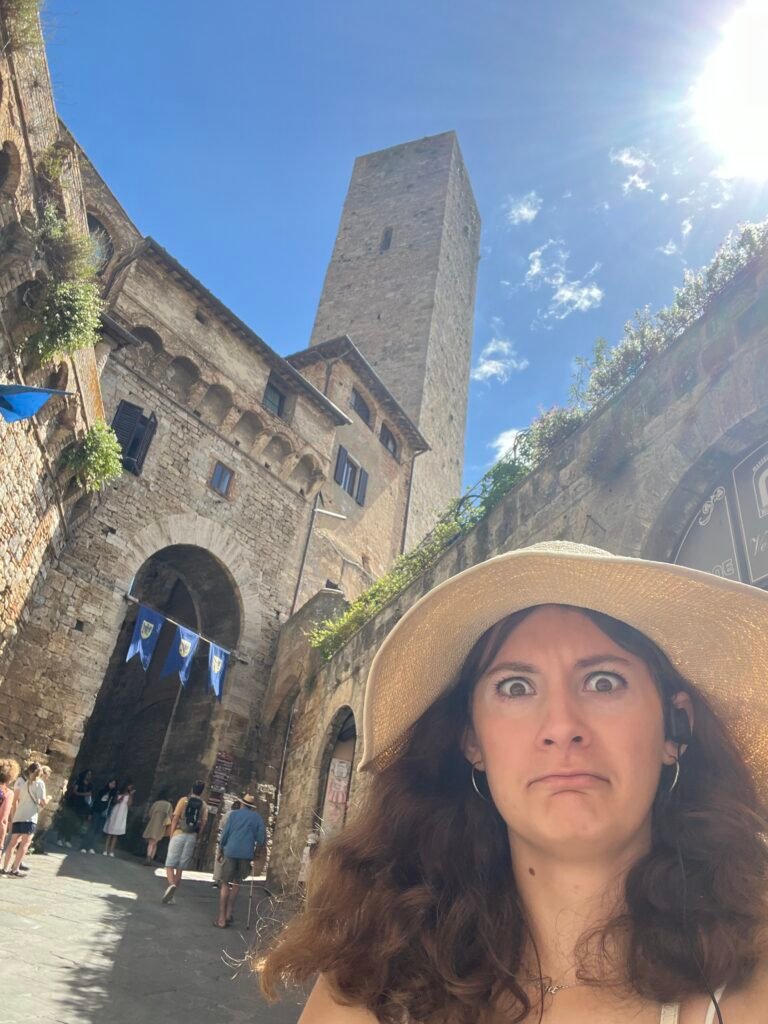
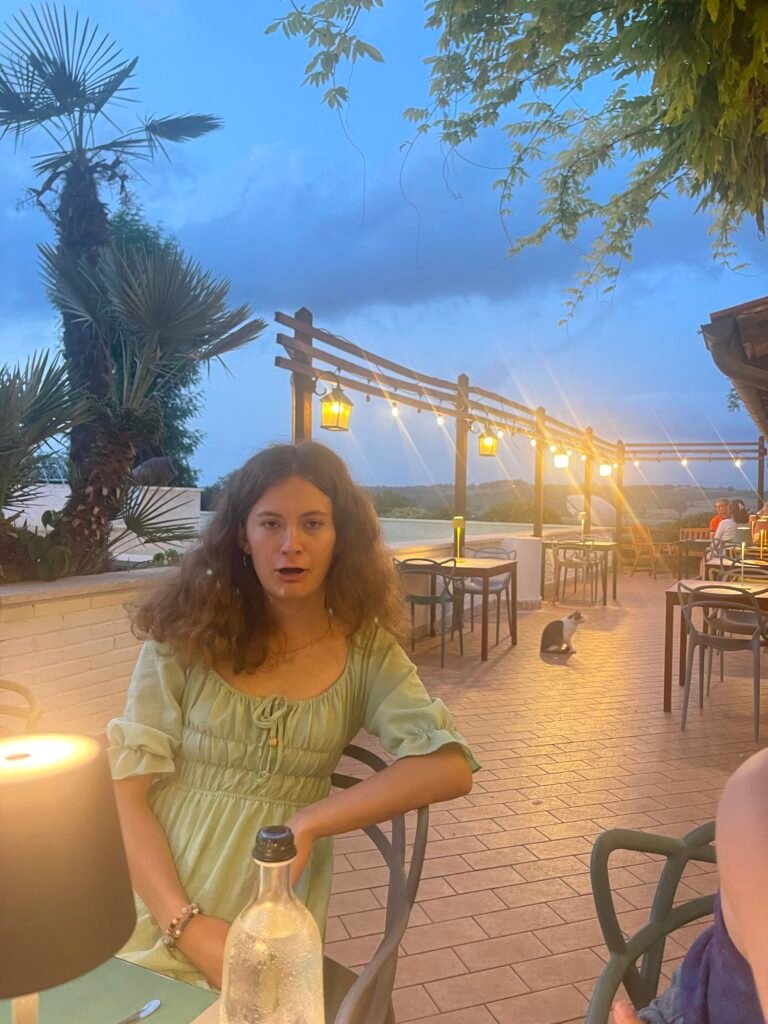
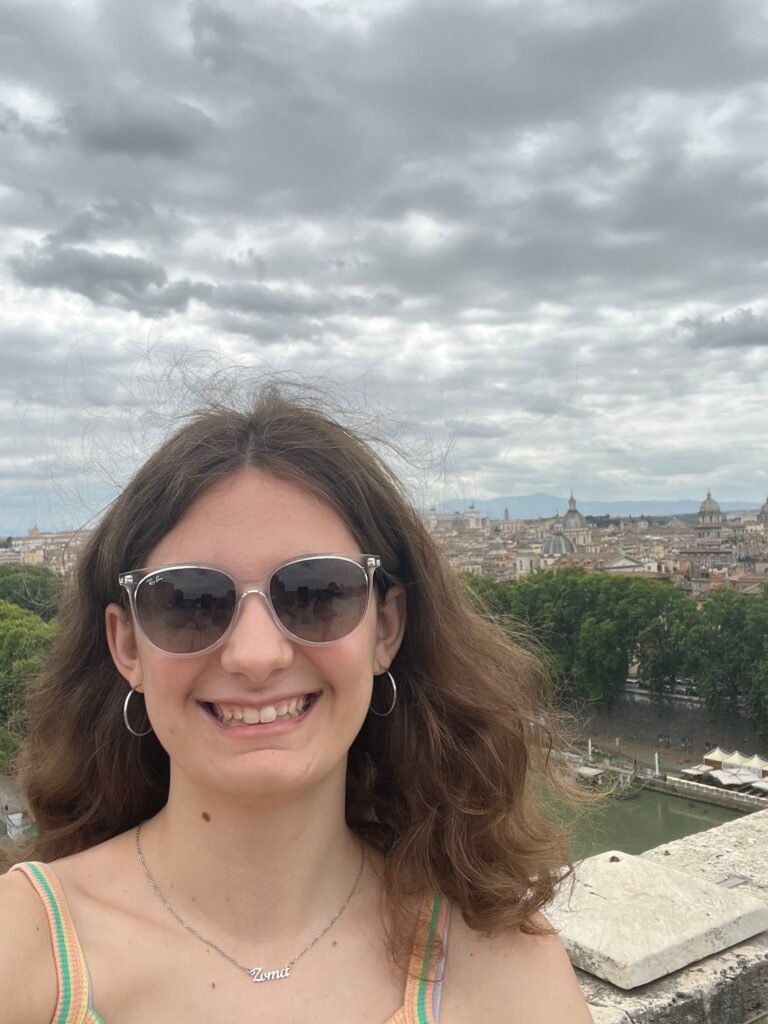
If you feel that social media is taking up a lot of your free time, try deleting it for a day, then three days, then a week, and then see how you feel! If this doesn’t feel like it’s improving your life, perhaps consider keeping social media but limiting your screen time. Getting rid of these apps isn’t easy, but doing so can have many benefits, so give it a try!
Set Goals For Yourself and Run After Them
My last tip is perhaps my most important one: Set reasonable goals for yourself and constantly work toward achieving them. If you’re not sure where to start with this, ask yourself: What are the most valuable or pressing aspects of your life that you would like to improve? Is there a skill you want to learn, a habit you want to form, or a routine you’d like to explore? From there, try to break down that final objective into smaller, more manageable parts and dedicate yourself to accomplishing each step.
An example is when I decided to change majors in college after my first year. As mentioned above, I was previously a computer science major but disliked what I was learning and the courses I took. In light of this, I knew that I should consider switching majors. After a few months of reflecting and exploring different possibilities, I realized psychology would be a great fit, as I have been interested in it my whole life. Thus, I set a few goals to transition into this new major: take introductory psychology courses to see if I enjoy them more than computer science, talk with professors to explore career opportunities, and apply to get into a clinical research lab to get more experience. I accomplished all three goals one at a time over the past year and have successfully transitioned majors to one I am far happier with!
Even though my initial goal of changing my major seemed incredibly daunting, breaking it down into smaller sub-goals helped me achieve it piece by piece. If you have a goal of similar scope, reflect on different ways you can begin to work towards it. Remember, little and often make much!
Post-Glow-Up: How It’s Going
A year ago, I never imagined that I would be studying abroad, majoring in psychology, and out of my toxic relationships, much less allowing myself to enjoy life. To me, this life, this “dolce vita,” seemed impossible for me to attain, given my crippling anxiety and depression. A year later, as I write this reflection on my life over the past 365 days, I have come to realize that while I have struggled, fallen, and taken many hits, there is absolutely nothing that can keep me from getting back up, no matter how hard it may try. To some, “la dolce vita” means enjoying life. To others, “la dolce vita” doesn’t exist. And to some, “la dolce vita” is just another tourist attraction slapped onto another restaurant sign. But to me, “la dolce vita” is always within reach — you need only learn to live it inward to grasp it outward.
